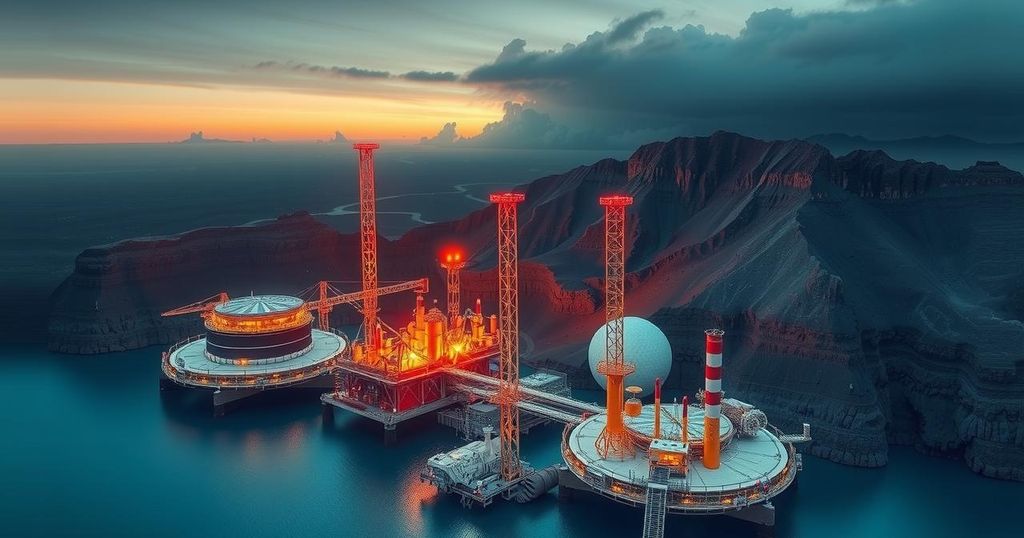Iran is facing a significant energy crisis this winter despite its vast natural gas and oil reserves. Mismanagement, Western sanctions, and climate change have resulted in power blackouts and fuel shortages, crippling daily life. The situation prompts urgent considerations for systemic reforms, as the reliance on low-quality fuels exacerbates health and environmental issues. The crisis serves as a crucial example for other nations in the region to enhance their energy infrastructure against similar challenges.
Iran, traditionally recognized for its abundant natural gas and crude oil reserves, is currently experiencing a severe energy crisis exacerbated by mismanagement, international sanctions, and climatic challenges. Despite ranking second globally in proven natural gas reserves and fourth in crude oil production, the nation faces widespread power outages and fuel shortages, leaving millions without heating during one of the coldest winters in years.
Officials have attributed the crisis to high energy consumption and inadequate fuel supply; however, these factors underscore deeper systemic issues. Longstanding underinvestment in infrastructure, coupled with the crippling impact of Western sanctions, has rendered Iran ill-prepared to manage seasonal energy demands effectively. President Masoud Pezeshkian has highlighted the severity of the situation, as cities like Tehran endure unannounced blackouts as a harsh reality for their residents.
The consequences of these power outages have decimated both the daily lives of citizens and the economy. Families struggle to stay warm, layering clothing during extended periods of unheated homes, while businesses incur losses due to intermittent power cuts. Major thoroughfares now find themselves engulfed in darkness, raising significant safety concerns for nighttime travelers.
The intertwining effects of climate change and sanctions further complicate the energy crisis. Rising energy consumption due to extreme seasonal weather challenges the already strained infrastructure, which has not been modernized due to restrictions on acquiring clean fuel technologies. Environmental degradation is also a pressing issue, as power plants resort to burning mazut, a low-quality oil that contributes significantly to Tehran’s pervasive smog and deteriorating air quality, resulting in thousands of pollution-related deaths every year.
The ongoing energy crisis prompts critical questions regarding Iran’s future and the potential for systemic reforms and investments in sustainable energy sources. The lessons learned from Iran’s current struggles present a crucial opportunity for Middle Eastern nations to construct resilient energy systems that bolster their ability to withstand both climatic and geopolitical challenges.
Iran’s energy landscape is intricate, characterized by vast reserves juxtaposed with infrastructural challenges and political embargoes. Despite being endowed with substantial oil and gas resources, the country struggles to manage energy demands adequately, particularly during extreme seasonal changes. The crisis is a culmination of years of neglect in infrastructure investment, compounded by the detrimental effects of international sanctions aimed at curbing Iran’s nuclear ambitions. These factors collectively hinder the nation’s ability to modernize its energy system and improve its environmental standards, culminating in detrimental public health outcomes and economic difficulties as evident from the recent energy crisis.
In summary, Iran’s energy crisis is a multifaceted issue driven by natural resource mismanagement, international sanctions, and the imperative challenges posed by climate change. The increasing energy demands create overwhelming pressure on an outdated infrastructure, necessitating urgent reforms and investments in renewable energy. As Iran seeks solutions to navigate this crisis, insights gained from its plight could serve as a guiding framework for other Middle Eastern countries striving to develop resilient energy systems.
Original Source: scoopempire.com






